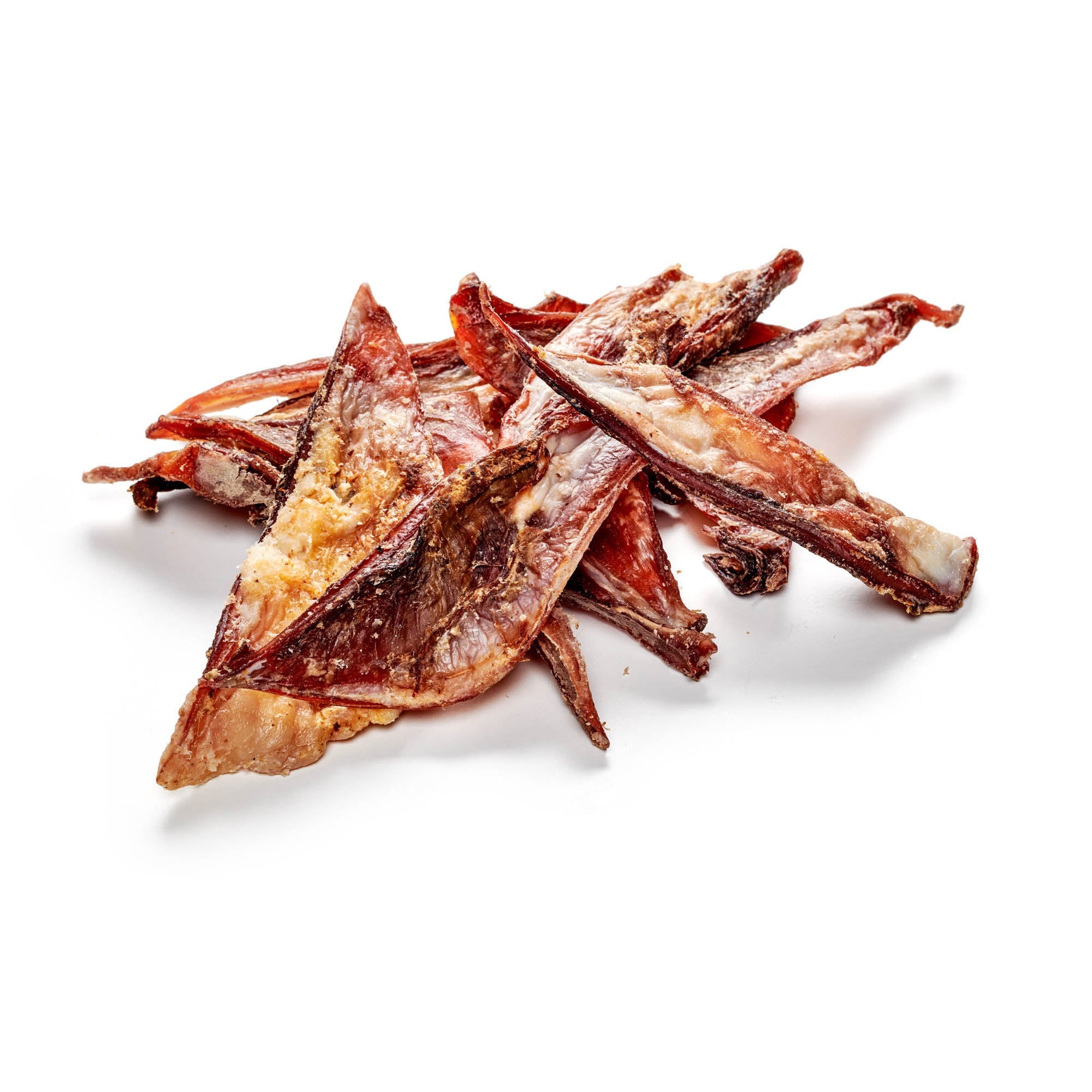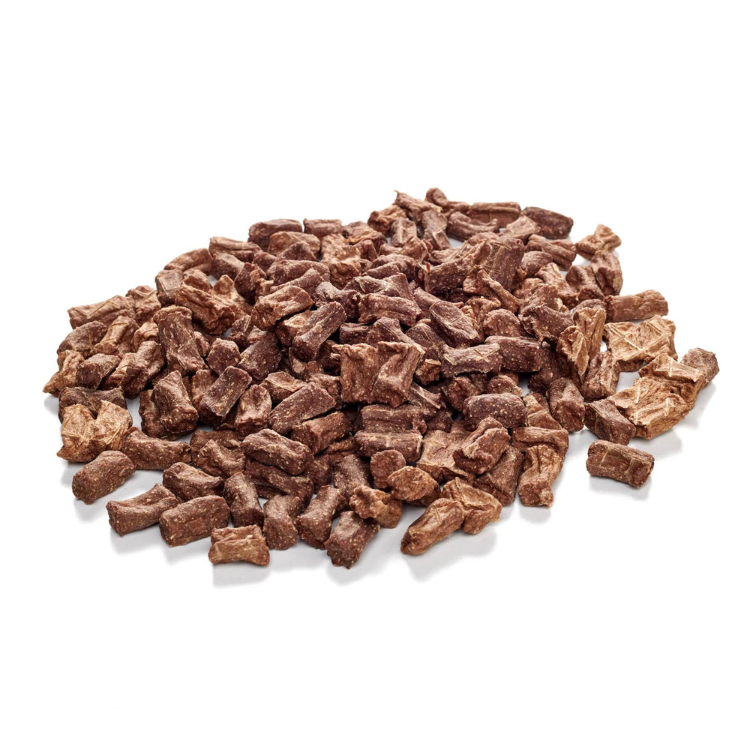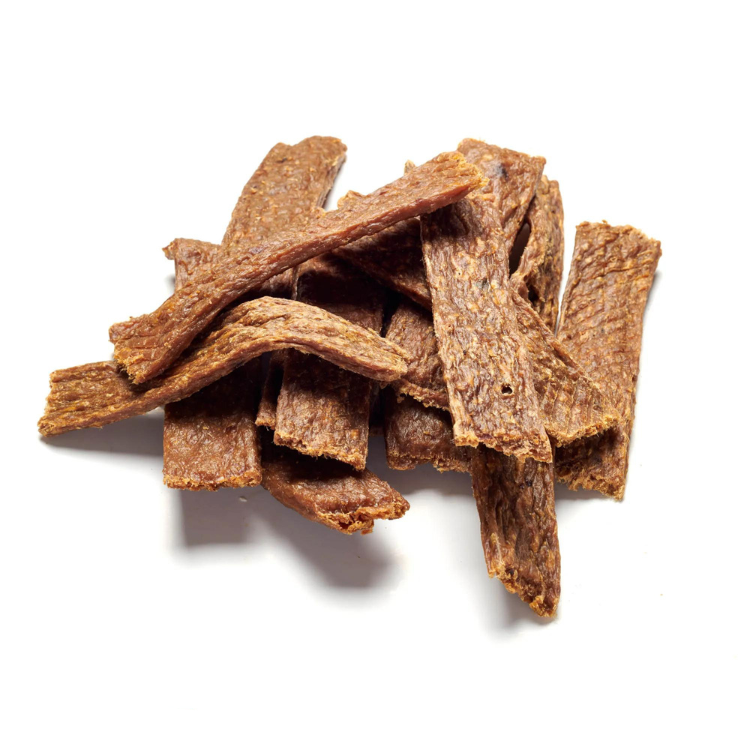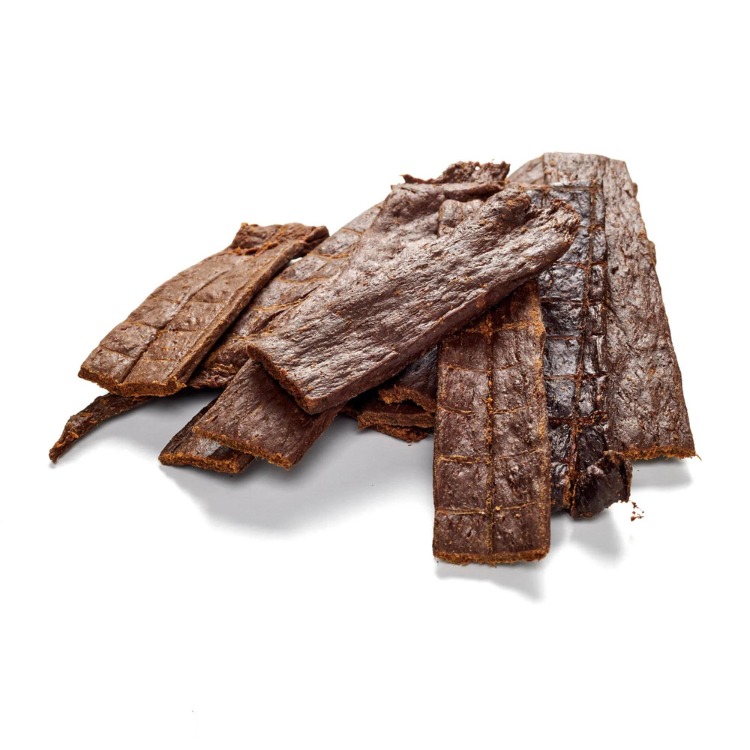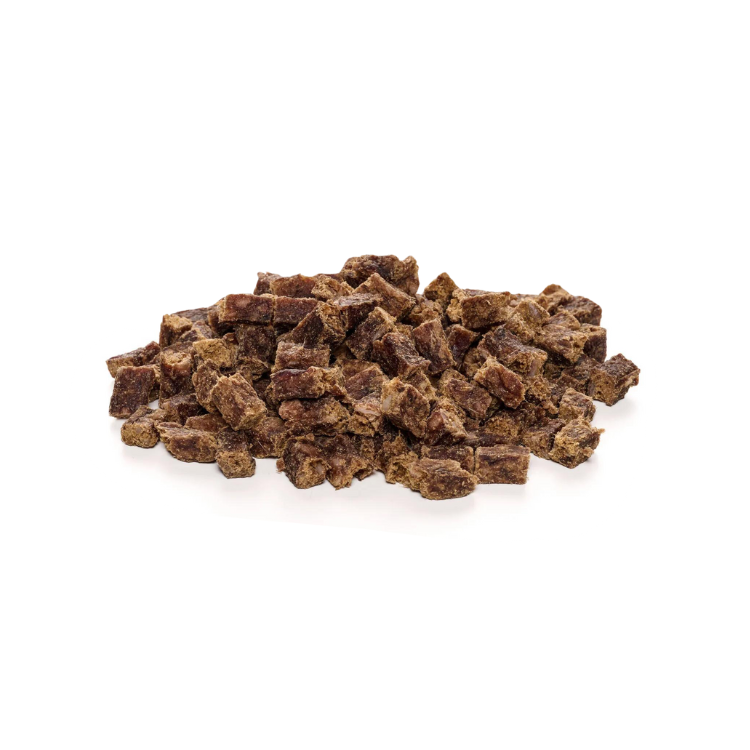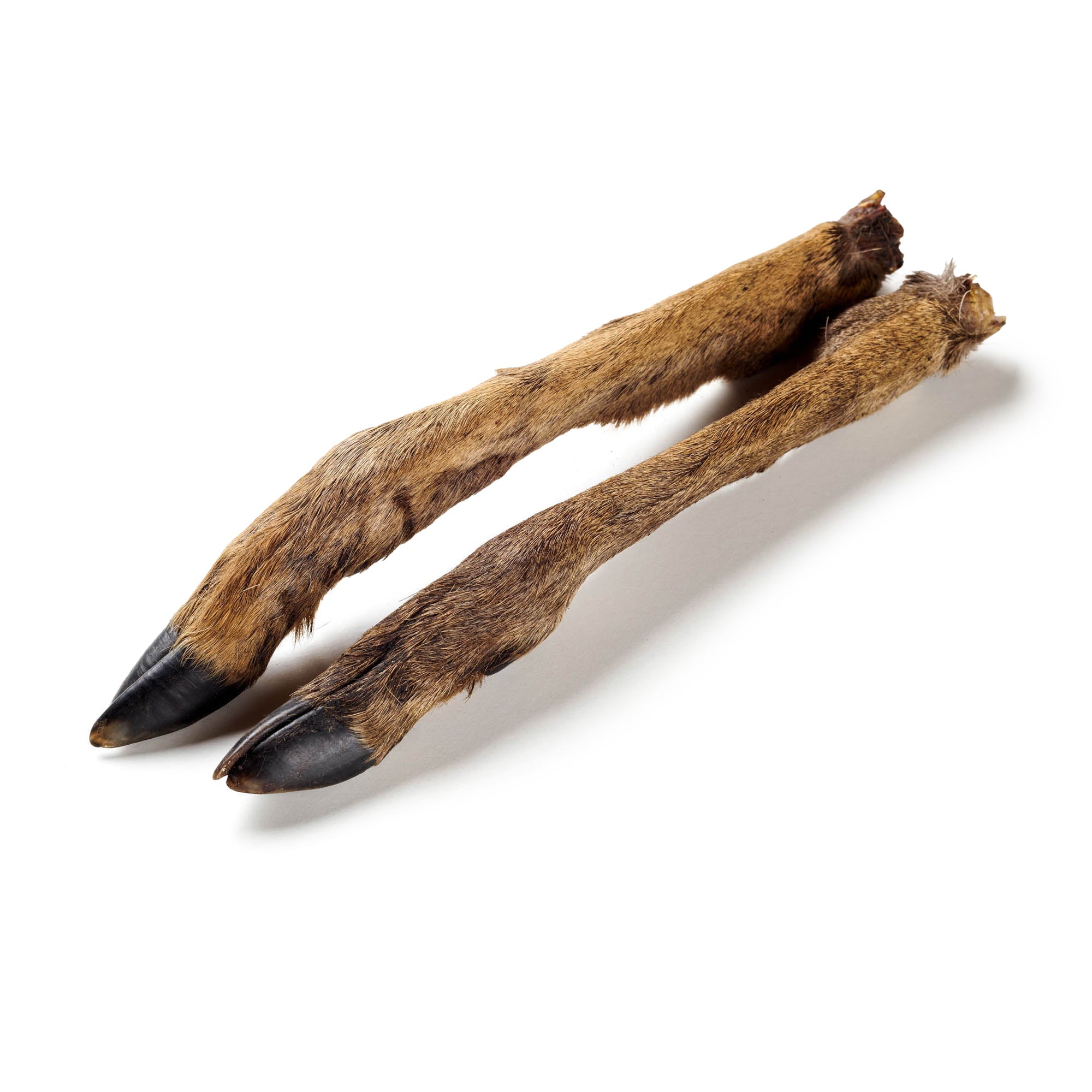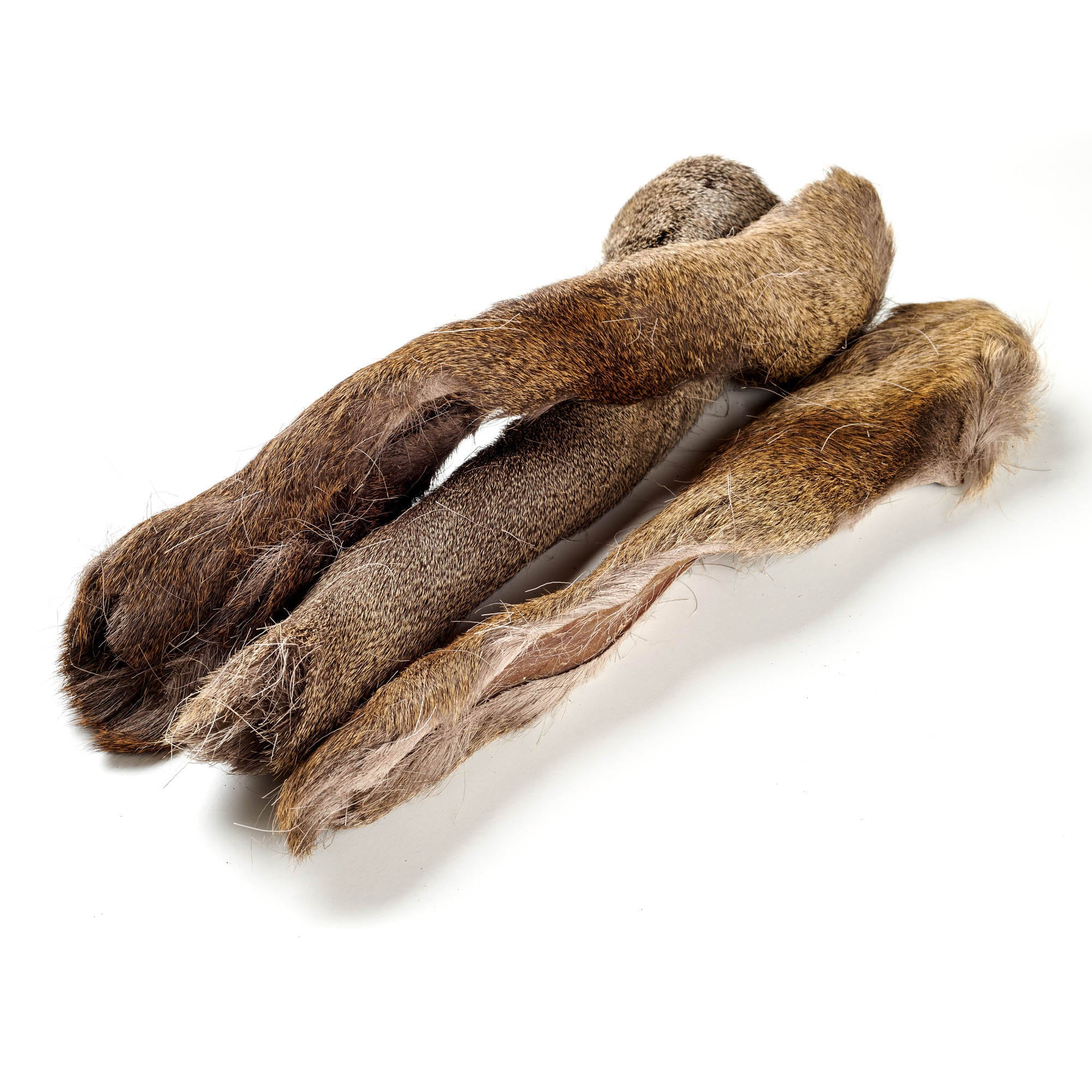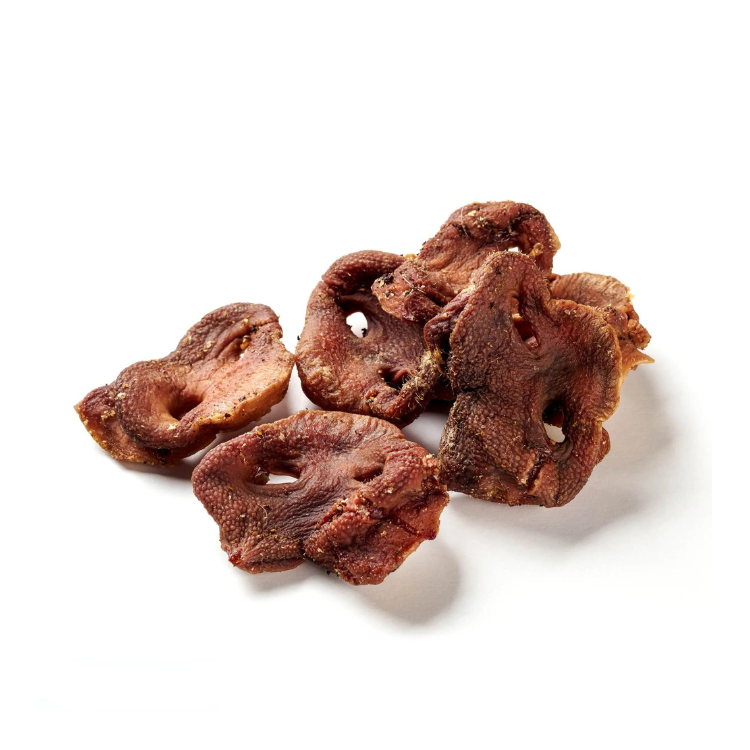
Which nuts can dogs eat?
Share
Dogs love variety in their diet, and sometimes they can have small snacks that go beyond the typical treats. Nuts, which are full of healthy fats and valuable nutrients, could at first glance be an ideal addition. But as with many foods for our four-legged friends, caution is advised here too - not every type of nut is suitable. While some types offer real health benefits, others can pose serious risks.
Content: Which nuts can dogs eat?
- The health benefits of nuts
- Suitable nuts for dogs
- Unsuitable nuts
- Sensible use of nuts
- Additional tips and hints
- Conclusion
If you want to treat your dog to nuts every now and then, you should know which types are safe and how to give them correctly. If chosen carefully and offered in moderation, they can actually be good for your dog - provided you know exactly which types can end up on the menu.
Reward your dog with our high-quality chew products!
The health benefits of nuts
Nuts are not only a delicious snack for dogs, they also offer numerous health benefits.
High-quality energy source
Nuts provide dogs with important healthy fats, especially omega-3 and omega-6 fatty acids. They have a positive effect on the animal's general well-being and support the health of its skin and coat.
Rich in nutrients
Nuts contain a variety of vitamins and minerals that are helpful for keeping dogs healthy. This affects cell health on the one hand and the nervous system, the immune system and the bones on the other.
Antioxidant properties
Antioxidants are substances that help reduce cell damage in dogs by fighting free radicals in the body. They are found in nuts and have a disease-preventing and generally anti-inflammatory effect.
Suitable nuts for dogs
Not all types of nuts are safe for dogs. It also depends on the individual dog; some dogs don't like nuts and tolerance is not uniform. If this is taken into account, nuts can be an enrichment to a dog's diet .
Sweet almonds
Sweet almonds (be careful - do not confuse them with bitter almonds) provide the dog with many unsaturated fatty acids, plenty of folic acid and, above all, vitamin E. The ingredients support the immune system and the nerves.
Peanuts
As long as dogs do not have heart or kidney disease, they can be given peanuts. The nuts are rich in protein, magnesium, potassium and iron. They also contain trace elements that are good for health.
Cashew nuts
Cashew nuts support the digestive process. They provide fiber, which supports the dog's intestinal health. The nuts are also good for the skin, fur and bones due to their minerals and high-quality proteins.
Walnuts
Walnuts are ideal for dogs due to their excellent composition of vitamins, potassium and the variety of unsaturated fatty acids. However, this only applies to walnuts that are absolutely ripe, completely dried and, above all, mold-free.
Hazelnuts
Hazelnuts are rich in vitamins as well as calcium and potassium. They are an excellent source of protein for dogs and provide them with plenty of fiber. As a harder type of nut, hazelnuts also help clean teeth, provided the dog chews them enough.
Make your dog happy with our tasty chews!
Unsuitable nuts
A whole range of types of nuts are unsuitable for dogs and can even cause poisoning in some cases. They can cause significant harm to the animal and should not be given to them.
Brazil nuts
Brazil nuts contain a high concentration of the trace element selenium. It should only be consumed in small quantities so that it can be utilized by the body. Too high quantities have a toxic effect. Nausea and diarrhea are common symptoms, as are hair loss and neurological disorders.
Macadamia nuts
The fatty acids contained in macadamia nuts are not tolerated by dogs. An increase in body temperature is possible, as are tremors and severe vomiting. The chemical compounds in macadamia nuts known as natural methylxanthines are also extremely dangerous for animals and can also lead to paralysis.
Pecans
Pecans contain various ingredients, especially tannins and oxalate. Health problems are possible, including inflammation of the stomach and gastric mucosa and the formation of kidney stones if large quantities of nuts are consumed.
Pistachios
Pistachios are known for their high phosphorus content, which can have a problematic effect on the kidneys. Aflatoxins, which are often contained in mold, are also considered very dangerous for dogs and can lead to liver damage.
Sensible use of nuts
Nuts are both healthy and very high in energy. They should not be offered indiscriminately or in excessive quantities, but should be fed carefully.
Nuts as a reward
One way to use nuts is to train dogs. They are very suitable as an incentive or reward in the sense of positive reinforcement. The dog's preferences must always be taken into account. Many dogs love nuts, others find them only moderately interesting and prefer special treats . In order to be useful as a training tool, the dog should see nuts as an attractive and desirable treat. This is a prerequisite for increasing motivation during training through this form of reward.
Nuts as an occasional snack
Dogs can also benefit from nuts regardless of training sessions. They are suitable, for example, as a change in the daily diet and are given as an alternative to the usual and mostly already familiar classic dog treats. However, as always with snacks, use them in moderation and do not offer them constantly.
Nuts in the daily diet
Dog owners who feed their pets fresh or home-cooked food can add a small amount to their daily food. One or two nuts are enough to benefit from the health benefits and the pleasant taste. It is a good idea to add the nuts to the food in very small or ground form.
Additional tips and hints
Not only the right supply of nuts is important for dogs, the form of administration and the quantity also play a crucial role.
Edible condition
Nuts should always be offered to animals in their natural form and without the shell. Nut shells can cause injuries or are difficult to swallow. Processed nuts are also not suitable for dogs. These include salted, sweetened or seasoned nuts. They can have a negative effect on the animal's digestion and are not recommended.
Healthy but nutritious
Nuts are generally very healthy and contain valuable oils that are often beneficial for a dog's diet. At the same time, they contain a very high number of calories, which will eventually become noticeable if given regularly. Ideally, nuts are offered as an occasional snack. The amount should ideally be appropriate for the dog's size and activity level; usually a few nuts are enough. A low-calorie option may be low-fat chews . These should of course not be fed in raw quantities, but can certainly be lower in fat.
Avoid suffocation
Dogs are known for gulping down their food and only chewing it minimally. This can be a problem with nuts, because if they are swallowed whole, there is a risk of choking. To prevent the animal from choking, larger nuts in particular should always be given in chopped form. If you want to include nuts in the meal, you can also use them in ground form.
Pay attention to freshness
One of the most important aspects of nuts is freshness. Nuts that have been stored for a long time and old nuts go rancid very quickly, and mold is also often a risk. This can be a serious problem for dogs. The animals should only be given fresh nuts in order to avoid health problems. If you are unsure about the quality, you can usually find out whether the nuts are still suitable for consumption by smelling them. Rancid or otherwise spoiled nuts smell unpleasant.
Allergies and intolerances
As with humans, not every dog can tolerate nuts. Allergies are one of the most common intolerances. When offering nuts or a certain type of nut for the first time, the dog should be closely monitored so that possible signs of discomfort are not overlooked. If the animal vomits, shows signs of restlessness and discomfort, or gets diarrhea , the type of nut given is at least not acceptable.
Conclusion
While nuts can be a healthy and nutrient-rich addition to dogs' diets, caution is advised. Choosing the right types of nuts - such as almonds, cashews and peanuts - can provide valuable benefits for your dog's skin, coat and immune system. At the same time, however, potentially dangerous nuts such as macadamias or walnuts must be avoided at all costs as they pose serious health risks.
This knowledge is practical and easy to implement: In moderation and with caution, nuts can be a useful addition to the diet, whether as an occasional snack or as a reward during training. Make sure to give the nuts unseasoned and in small quantities, and make sure that your dog tolerates them well.
And if you're not sure about the nuts - don't worry! Healthy chews are always a good choice and your dog won't mind. After all, there are plenty of treats out there that will make him happy!
Ultimately, it's about acting with responsibility and love - and the joy you can give your dog by making the right choices is priceless. Use this knowledge to keep your four-legged friend happy and healthy!
Reward your best friend with our dog treats!

